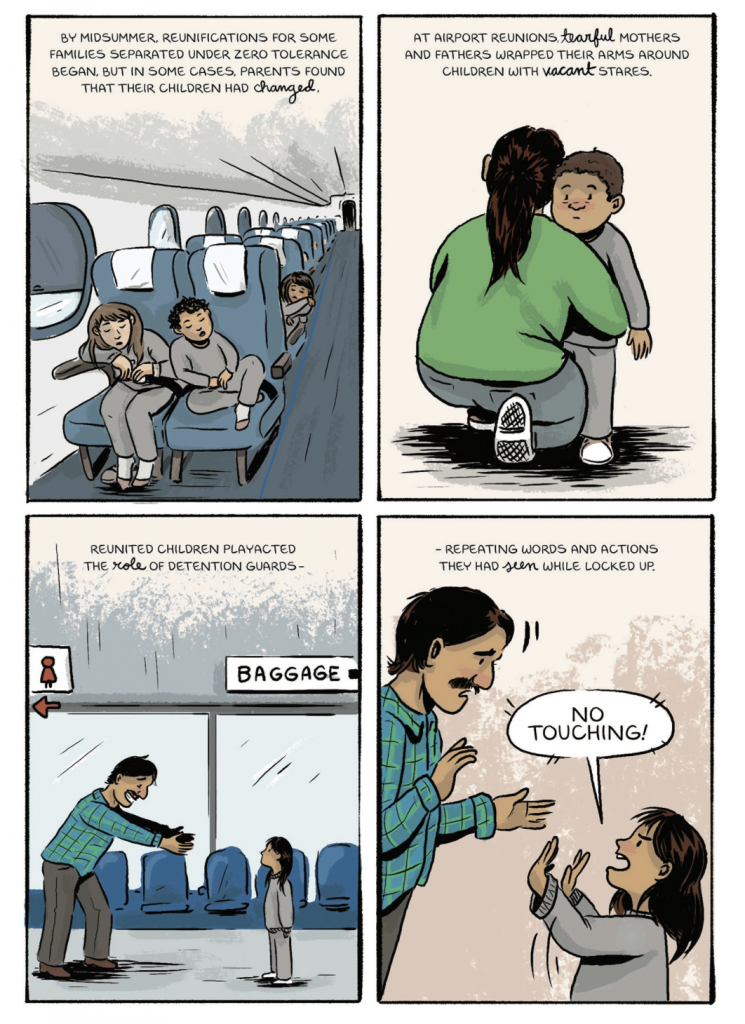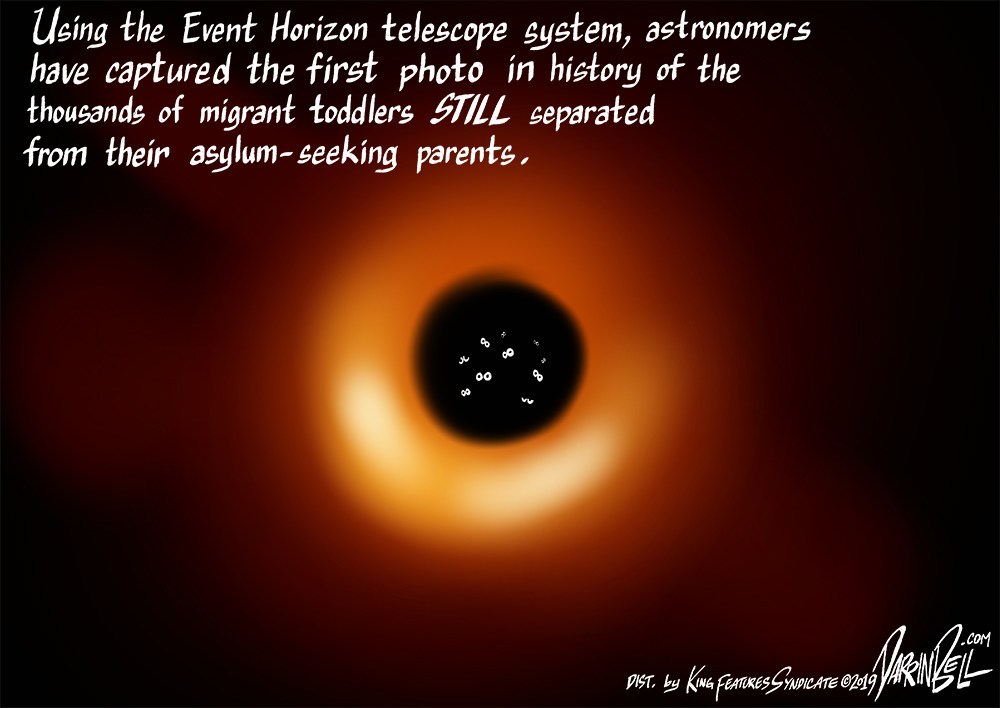I’ll make this brief.
How do you know you have a bias against a group of people?
For your consideration:
One: This comic from Katie Wheeler and Ryan Deveraux about the life long effects and trauma of being separated from their parents when immigrating to the US.
vs.
Two: The (apx.) 20 million current and former foster children across the US (6% of the population) who no one seems to think suffer the same life long effects and trauma.
Because?
When you are of the belief that the same action hurts one group of people in one way but not another, you have to ask why you think that. When you think that you have an obligation to fight for one of those groups, but not the other, you have to ask yourself why.
And the only answer anyone ever comes up with is “but their parents…” Yeah. I know. I know their parents did something you didn’t like. How does that justify the trauma we are inflicting on kids taken into the foster system?
The scene portrayed in the comic is EXACTLY the scene that plays out everyday in this country with parents and children taken into foster care.


